
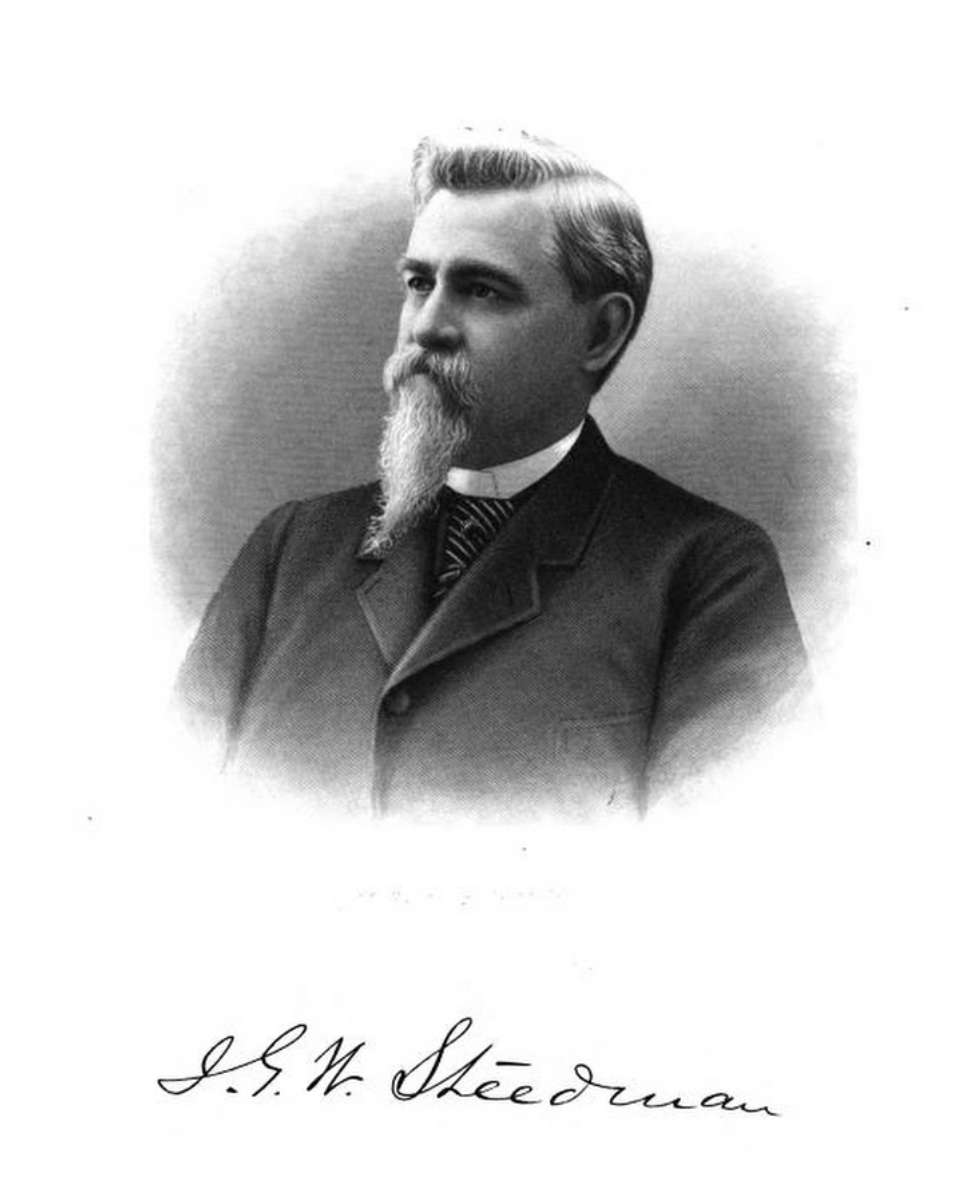 An Honorable Success in Life
An Honorable Success in Life
Dr. Isaiah George Washington Steedman
Born: Sept. 13, 1835, Lexington County, SC
Died: May 15, 1917, Saint Louis, MO
Burial: Bellfontaine Cemetery, Saint Louis, M
I.G.W. Steedman is a native of South Carolina, and was born in Lexington County of that state, in the year 1835. High courage, great strength of character and strong and sound native mental faculties, are marked characteristics of Dr. Steedman, and indeed of all his family and ancestors. His high qualities as a soldier, citizen, and scholar, have been rightly inherited from his ancestors, who, under General Washington, Hampton, Sumter, and Marion, fought for and assisted in establishing the freedom of the American colonies. These ancestors were of the best blood of South Carolina; and his immediate living relatives have all done their share toward maintaining the family reputation, and are all men who have well performed their every duty in life. The Steedman blood had a war-like tendency and several of these made good records as soldiers.
At the age of seventeen, after a thorough academic training in the lower schools, the subject of this sketch in 1852 entered South Carolina Military Academy, on whose register the names of no less than six members of the Steedman family are enrolled. Having determined to adopt the practice of medicine as a profession, after graduation from the South Carolina Military Academy, in 1856, he entered the South Carolina Medical College, at Charleston, where he took his first course. His next step was to go to New Orleans, where he took two additional courses at the medical colleges and received his diploma from the Medical Department of the University of Louisiana. Having graduated in 1859, he at once began the active practice of medicine and surgery in Wilcox county, Alabama, in the heart of the cotton belt. His practice had only fairly been started when it was broken up the the Civil War.
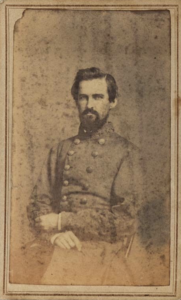
Colonel Steedman
Dr. Steedman’s sympathies were with the South, and he soon determined to actively espouse her cause. He relinquished his practice, raised a company of one hundred young men, and this was the beginning of a most interesting military career. Of this company he was at once made a captain, and offering his services to the Confederate army, with his company was ordered to Barrancas barracks, on Pensacola Bay, Florida. He was soon made a colonel of the First Regiment Alabama Volunteers and as such had command of Fort Barrancas during 1861-1862, during which time it withstood two bombardments from Fort Pickens and the Federal Navy. In 1862 the First Alabama was recruited to its full strength – 1000 men, and in March of that year was ordered to Island Number 10, Mississippi River, to support the left flank of the Shiloh Army. For six weeks the army withstood a heavy bombardment from the Federal Army and gunboats, and then was compelled to surrender. Colonel Steedman, suffering with double pneumonia, was put aboard a steamer and taken to St. Louis and put in prison in McDowell’s College on Gratiot Street. He was transferred to the prison at Camp Chase, near Columbus, Ohio, then Johnson’s Island in Lake Erie, where, acting on the request of the 3,200 officers there imprisoned, Dr. Steedman was by the Federal authorities placed in charge of the hospital within the prison walls. After a stay of four months at Johnson’s Island, Colonel Steedman was exchanged at Vicksburg in October, 1862. Colonel Steedman was again taken prisoner after the siege of Port Hudson and spent the balance of the war in no less than ten Federal prisons.
Colonel Steedman had been in the army four years and four months, two years and half of which he had spent in prison. He had never received leave of absence during this time, and his protracted imprisonment alone prevented the promotion which he deserved, and which he certainly have received could he have been exchanged.
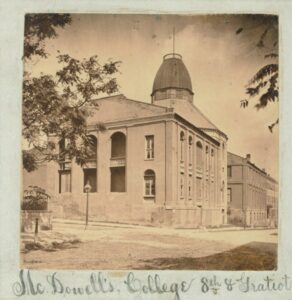
McDowell College – Eighth and Gration
Although it was as a prisoner of war the Colonel Steedman got his first view of St. Louis, he was very favorably impressed with the city. One factor of this favorable impression was a young lady whom he first met while a prisoner. She was Miss Dora Harrison, daughter of James Harrison, who lived opposite the old McCowell Medical College, situated on the northeast corner of Eighth and Gratiot streets and which has beed turned into a military prison. Miss Harrison and family administered to the wants of the prisoners then confined in the old college. After his final parole from Fort Delaware he again visited St. Louis a free man, and in October, 1865, he and Miss Harrison were married. He then determined to make St. Louis his home, and here in 1866 he again assumed citizenship and resumed the practice of medicine. In this he was successful. In 1880 he concluded to retire from practice and devote his time to his growing business investments. In order to more readily break from his practice, he and his family visited Europe, remaining abroad for a year, putting his three young sons in school in Paris.
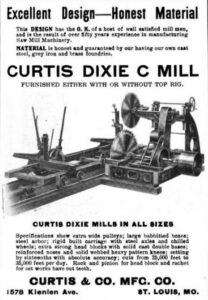
Ad for the Curtis Dixie Mill
Since his return in 1881 he has devoted much of his time to business investments, and he is a busy man of affairs, and as stockholder, director, or officer, he is interested in a number of business enterprises. He was president of the Curtis Manufacturing Company. One thing to which he devotes special study is the development of electrocution and locomotion, which he wisely considers pregnant with great possibilities. Not withstanding his other duties, the doctor finds much time to devote to scientific research, and has never ceased to be an enthusiastic student. He has a taste for the natural sciences, and has an eight-inch reflecting telescope mounted on top of his residence. The breadth and liberality of his mind are constantly exhibited, and in no more striking manner that the friendship he has manifested in higher education. He has shown this belief practically by the excellent manual training and university education he has given his three sons. Although he has given up active practice, he is a member of several medical societies and keeps in constant tough with the advance of medical science.
And finally, it may with truth be said of Dr. Steedman that as a soldier his career has been distinguished by courage, that as a physician he was skillful, that as a citizen he is a benefactor of his fellow-men, as a scholar has learning is profound, the whole crowned with the fruitage of honorable success in life.
excerpted from Old and New St. Louis
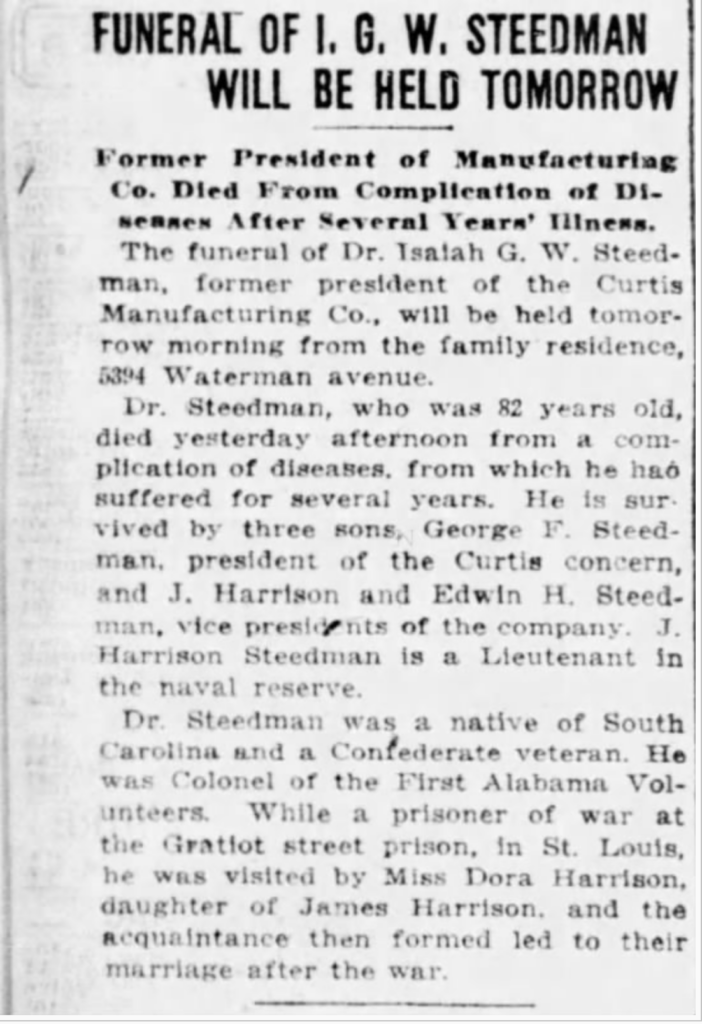
Dr. I.G.W. Steedman Obituary